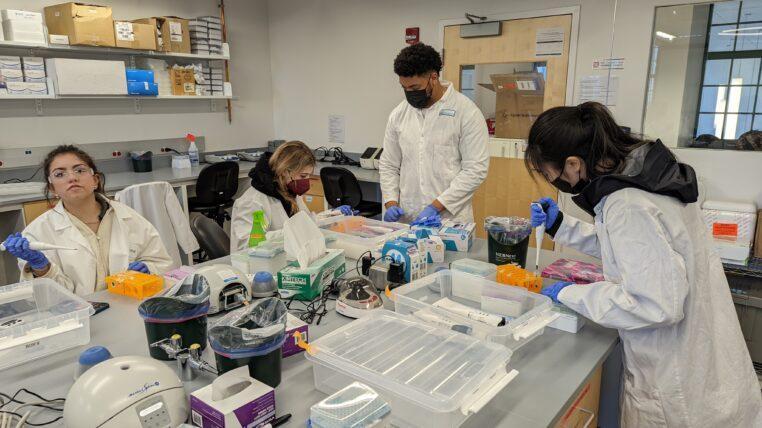
PROGRAM DETAILS
Associate Degree in Biotechnology
Duration: 2 Years
Career focus/Specialization: Research and Development, Biotech Manufacturing, Laboratory Training.
Full Course List
Why Biotechnology?
As biotechnology companies seek novel therapies for cancer, heart disease, diabetes, and rare diseases, they are constantly expanding their drug development efforts. This means there are careers out there where you can be on the cutting edge of science and technology while working to end disease and save lives.
Associate of Science (AS) in Biotechnology
Our Biotechnology associate degree program will give you a solid foundation in the science that underlies the biotechnology industry, as well as hands-on laboratory experience and two in-company internships.
You will not only learn the importance of biological mechanisms and methodologies, but also develop the real-world skills necessary to support the engineers and scientists in the industry—including instrumentation, testing, laboratory support operations, experimental data collection, and procedural operations.
Upon graduation you will be ready to work in the biotechnology industry in a number of entry-level roles and continue to build your career in biomanufacturing, clinical research, biotechnology, bioengineering settings, and more.
What You Will Learn
Students who graduate from this program will be able to:
- Understand the hands-on techniques relevant to biological sample collection, testing, data collection and analysis.
- Procure basic knowledge in theoretical and experimental aspects of biological sciences and instrumentation.
- Develop the necessary theoretical and practical technical competencies to efficiently perform calibration of instruments, verification, quantification, and validation of data.
- Evaluate and analyze performance metrics; understand the importance of proper documentation practices.
- Acquire fundamental knowledge in bioinformatics, project management methods and social/ethical concerns in the biotechnology industry.
- Understand the environmental and economic impacts of biological testing and medical testing methods.
- Possess the skills to generate technical reports and perform basic data analysis.
Career Opportunities in Biotechnology
Potential job titles include:
- Research Associate
- Research Technician
- Laboratory Technician
- Manufacturing Technician
- Medical Technologist
- Science Writer
